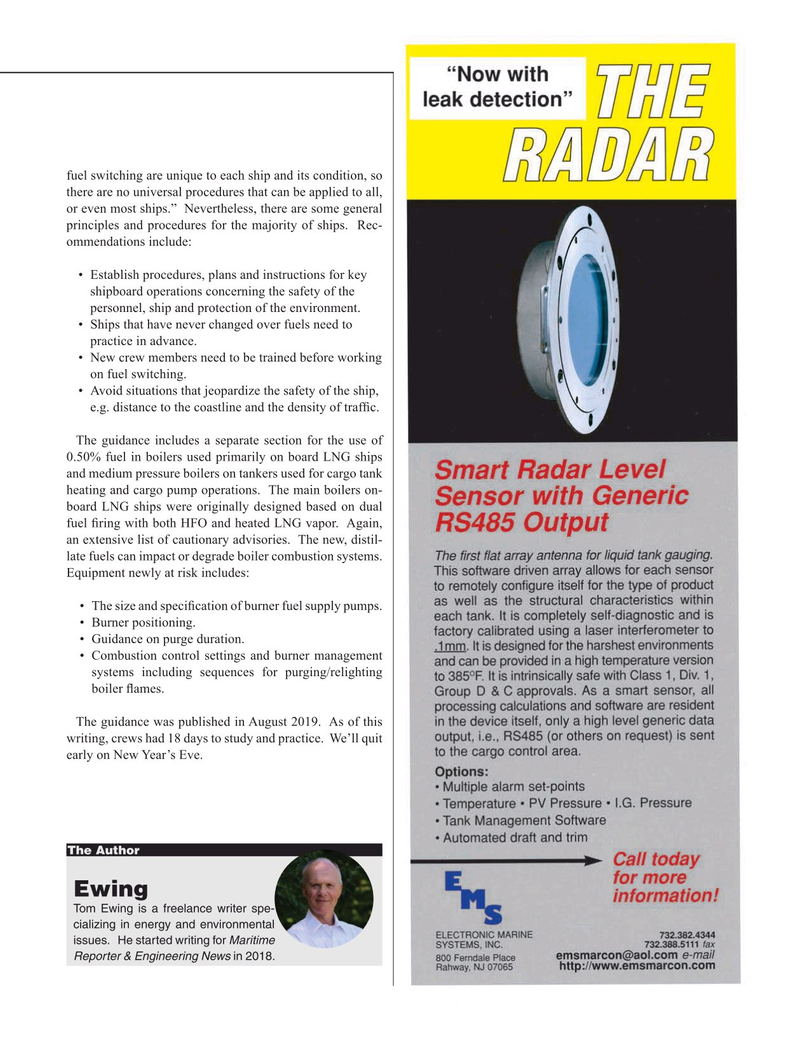
Page 17: of Maritime Reporter Magazine (January 2020)
Ship Repair & Conversion Annual
Read this page in Pdf, Flash or Html5 edition of January 2020 Maritime Reporter Magazine
fuel switching are unique to each ship and its condition, so there are no universal procedures that can be applied to all, or even most ships.” Nevertheless, there are some general principles and procedures for the majority of ships. Rec- ommendations include: • Establish procedures, plans and instructions for key shipboard operations concerning the safety of the personnel, ship and protection of the environment.
• Ships that have never changed over fuels need to practice in advance.
• New crew members need to be trained before working on fuel switching.
• Avoid situations that jeopardize the safety of the ship, e.g. distance to the coastline and the density of traf? c.
The guidance includes a separate section for the use of 0.50% fuel in boilers used primarily on board LNG ships and medium pressure boilers on tankers used for cargo tank heating and cargo pump operations. The main boilers on- board LNG ships were originally designed based on dual fuel ? ring with both HFO and heated LNG vapor. Again, an extensive list of cautionary advisories. The new, distil- late fuels can impact or degrade boiler combustion systems.
Equipment newly at risk includes: • The size and speci? cation of burner fuel supply pumps.
• Burner positioning.
• Guidance on purge duration.
• Combustion control settings and burner management systems including sequences for purging/relighting boiler ? ames.
The guidance was published in August 2019. As of this writing, crews had 18 days to study and practice. We’ll quit early on New Year’s Eve.
The Author
Ewing
Tom Ewing is a freelance writer spe- cializing in energy and environmental issues. He started writing for Maritime
Reporter & Engineering News in 2018.
MR #1 (1-17).indd 17 1/13/2020 8:49:19 AM

 16
16

 18
18
